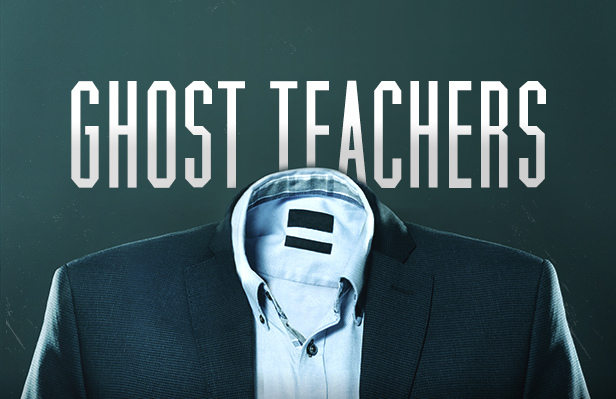Commentary

Ghosts in the Education Machine
Note: This commentary was published in many Pennsylvania news outlets, including the Pittsburgh Tribune Review.
If Pennsylvania students miss three days of school without an excuse, the law says they must be reported. But across the commonwealth, certain teachers have been absent for years—without consequences.
Dozens of teachers and school district employees greet each school year not by walking into a classroom but by walking into their full-time jobs with the local teachers’ union. Here’s the kicker: these “ghost teachers” stay on district payroll, receive health benefits, amass pension credits, and accrue seniority, just as if they were actually teaching.
It’s a scandalous misuse of public resources that’s been happening under taxpayers’ noses for decades.
In the midst of well-publicized staffing shortages, for example, Philadelphia lets up to 63 district employees work full-time for the union. Philadelphia Federation of Teachers President Jerry Jordan is himself a ghost teacher who’s worked for the union for over 30 years.
Amazingly, the union isn’t contractually obligated to pay the district for ghost teachers’ salaries, benefits, or the cost of hiring a substitute to replace them. Though the union is voluntarily reimbursing the district for some costs, state taxpayers are out at least $1 million in pension payments since 1999.
Pittsburgh allows up to 14 district employees to work full-time for the union. Though reimbursement is required, these teachers still accrue seniority—and the perks that go with it—just as if they were in the classroom.
Across Pennsylvania, teacher contracts in 109 school districts allow unions to siphon teachers away from the classroom full-time.
In responses to Right-to-Know requests, many of these school districts could not say whether release time was being used, how much was being used, and if the district was receiving any reimbursement for associated costs. This should raise a huge red flag to anyone who values transparency and accountability in our public education system.
For now, ghost teaching is perfectly legal in Pennsylvania, but that may soon change. Already, the tide is turning.
In Allentown, where Allentown Education Association President Deb Tretter has been a ghost teacher since 2009, two residents sued to end the practice. It’s little wonder, too. Since 2000, state and local taxpayers have forked over more than $1.3 million to Allentown’s ghost teachers, without a penny reimbursed by the union.
Meanwhile, since 2011, the cash-strapped school district has laid off 272 teachers, while somehow finding enough money to pay the salary and benefits for the president of a union—a private organization.
Fortunately, in a huge victory for taxpayers, Pennsylvania’s teacher pension system recently agreed that Tretter and her immediate predecessor aren’t entitled to pension credit for their ghost teaching years. More than $75,000 has been returned to the school district as a result.
Now, legislation pending in Harrisburg signals that ghost teachers’ days may be numbered.
HB 2125, spearheaded by Reps. Rick Saccone, Jim Christiana, and Kristin Phillips-Hill, would end ghost teaching in Pennsylvania with two exceptions: Statewide teachers’ unions may retain three officials on leave for up to six years, and school district employees can take leave for 15 total days each school year, but no more than three consecutively.
In each of these exceptions, the bill requires the unions to reimburse every cent associated with the costs of leave, including pension and health benefits.
Simple common sense says public resources should not be used to support the staffing and operations of a private organization. Yet, for years, that’s exactly what’s been happening in Pennsylvania. Meanwhile, union leaders push for higher school taxes, while unions themselves drain resources from the classroom.
Unions have every right to hire employees to staff their offices. But they should not have the right to capture school district employees to do union work on taxpayer time.
It’s time for state law to catch up with logic and require that teachers hired by school districts actually show up for class. We don’t accept truancy for students, and we shouldn’t tolerate it for teachers.
# # #
James Paul is a senior policy analyst with the Commonwealth Foundation, Pennsylvania’s free-market think tank.